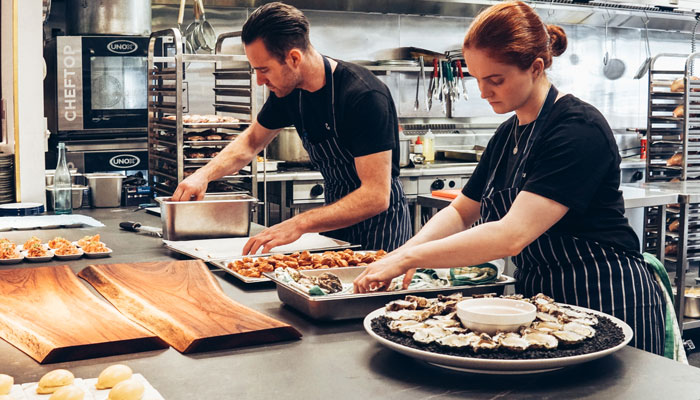Almost half of UK hospitality and food service managers call unplanned absence their top challenge

Almost half of managers (42%) in the UK hospitality and food service industries say dealing with unplanned absence is the most challenging task in their current role, followed by accurately forecasting customer demand (30%) as the second-most challenging, and with 28% admitting they have trouble building work schedules that simultaneously meet employee, customer, and business demands.
These findings come from a survey conducted by Kronos Incorporated and The Caterer of nearly 400 UK-based workers in the hospitality and food service industries, including workers at hotels, bars, restaurants, and leisure services. Managers and individual contributors (i.e. “employees”) paid either hourly or salaried were surveyed to examine the biggest challenges they face from a workforce management perspective.
Accurately planning workforce allocation to ensure the right people are assigned to the right tasks at the right time is a challenge. The survey revealed that almost three-quarters of all respondents (74%), regardless of their role, said they do not have enough staff on their team during peaks in demand at least some of the time, with 40% saying understaffing happens on a regular basis. Furthermore, almost two out of three respondents (65%) said that, at least some of the time, people on their team do not have the requisite skills to do the assigned job – with 27% saying this happens frequently.
Given the fast-moving nature of the hospitality and food service sectors, consistent improvement needs to be front of mind. When managers were asked what they would like to see their organisation focus on in the next one to two years to improve the performance of the overall team, 27% said new technology to streamline workforce-related processes should be a priority – the most widely desired change alongside increasing pay rates (also 27%). When individual contributors were asked the same question about improving individual performance, their workplace desire was to provide more training (29%) and higher pay rates (24%).
Key to any effective human capital management (HCM) strategy is being able to understand the behaviour of both customers and staff. Managers feel that having technology to accurately forecast customer demand (38%) would have the greatest positive impact on their performance and that of their business. This is followed by 34% of managers who want to receive proactive notifications that alert them of potential workplaces issues, including staff burnout, exceeding budgets, and non-compliance.
Further underlining this desire for intelligent solutions, 24% of employees voiced their desire for more self-service technology that empowers them to control their own work independent of manager involvement. Additionally, 22% of employees feel that an automated workforce scheduling process would have a positive impact on their performance, with 22% of managers desiring technology that provides real-time workforce analytics and reporting on mobile devices and tablets.
Neil Pickering, industry and customer insights manager, EMEA, Kronos: “Hospitality and food service industries are feeling pressure to remain agile in the face of fierce competition, rising costs, and changing market conditions. There is a clear burden on managers to meet the experience demands of their customers, but also the expectations of their employees. Good customer service, cost control, and high productivity rely on an engaged, well-trained, and motivated workforce – which means making people feel valued. Though some organisations may already be using workforce management technology or HCM solutions, the key is using the right technology.
"Optimising performance requires intelligent and modern technology that streamlines workforce processes, gives managers real-time visibility and control, and empowers staff to take greater control of work/life balance. The right-fit advanced technology can be truly instrumental in addressing the challenges highlighted in the survey. Tools that accurately forecast customer demand, optimise labour schedules, automate absence and payroll processes, deliver real-time analytics and KPI dashboards to managers, and provide self-service features to staff enable every employee to deliver their best performance – every day. Organisations that embrace technology to work smarter and more efficiently are the ones who will achieve competitive advantage.”
Image credit: Elle Hughes from Pexels
Add your comment

- Administration 1
- Building Design, Planning, Development 1
- Catering 2
- Construction 4
- Contracts, Projects, Bids 2
- Energy Management 1
- Engineering, Maintenance 14
- Estates, Property 4
- Facilities Management (main) 21
- Hard Services 12
- Health & Safety 1
- Management 6
- M&E 4
- Operations 9
- Sales & Marketing 3
- Soft Services 6
- Sustainability 1
- ICT, Technical 2
- Workplace 2


